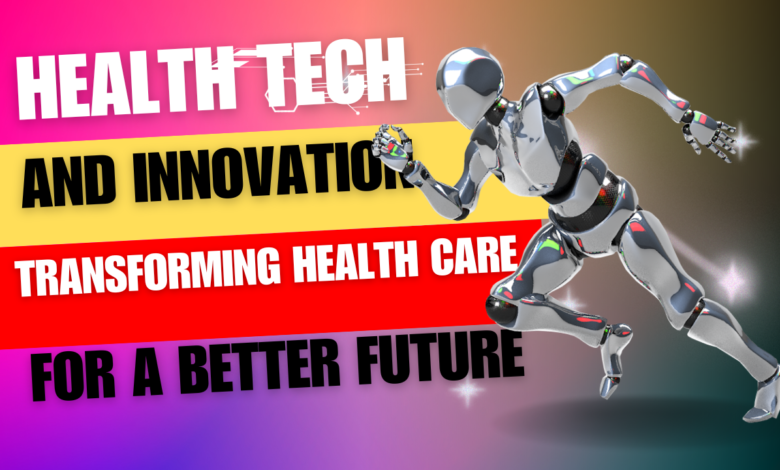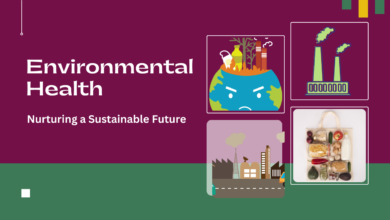
Health Tech and Innovation: Transforming Healthcare for a Better Future
Introduction:
Health tech and innovation have rapidly transformed the landscape of healthcare, bringing revolutionary changes in patient care, diagnostics, treatment, and the overall healthcare ecosystem. From telemedicine to artificial intelligence (AI) and wearable devices, innovative technologies are empowering both patients and healthcare providers. In this essay, we explore the profound impact of health tech and innovation on the healthcare industry and its potential to shape the future of medicine.
The Evolving Healthcare Landscape:
Health tech and innovation have ushered in a new era of healthcare that is characterized by:
- Telemedicine and Telehealth: Telemedicine has become an essential tool in providing healthcare services, especially during the COVID-19 pandemic. It offers remote consultations, diagnosis, monitoring, and follow-up care, increasing access to medical expertise, particularly in underserved or rural areas.
- Artificial Intelligence (AI) and Machine Learning: AI and machine learning algorithms are being used to analyze vast amounts of medical data, aiding in early disease detection, personalized treatment plans, and predictive analytics. These technologies enhance diagnostic accuracy and treatment outcomes.
- Wearable Devices and Health Trackers: Wearable health tech devices, such as smartwatches and fitness trackers, have empowered individuals to monitor their health, track fitness goals, and manage chronic conditions. These devices provide real-time data to both patients and healthcare providers.
- Electronic Health Records (EHRs): EHRs have streamlined healthcare workflows, enabling healthcare providers to access patient information securely and efficiently. They improve coordination of care, reduce errors, and enhance patient safety.
- Remote Monitoring and IoT: The Internet of Things (IoT) is transforming healthcare through remote monitoring of vital signs, medication adherence, and chronic disease management. IoT devices enable continuous data collection and timely interventions.
- 3D Printing: 3D printing technology is used in healthcare to create customized prosthetics, orthopedic implants, and even patient-specific surgical models. It offers precision and customization in medical solutions.
Impact on Healthcare:
- Improved Patient Care: Health tech and innovation have resulted in more patient-centered care, with increased access to healthcare services, reduced wait times, and personalized treatment plans.
- Enhanced Diagnostics: AI-driven diagnostic tools can analyze medical images, genetic data, and patient records with remarkable accuracy, aiding in the early detection of diseases such as cancer and improving treatment outcomes.
- Cost Efficiency: Digital health solutions can reduce healthcare costs by optimizing resource allocation, reducing readmission rates, and minimizing administrative burdens.
- Empowerment of Patients: Patients have greater control over their health and can actively participate in their care through self-monitoring and access to health information.
- Streamlined Healthcare Systems: Electronic health records and telemedicine reduce paperwork and administrative overhead, allowing healthcare providers to focus more on patient care.
Challenges and Considerations:
- Privacy and Security: The use of health tech raises concerns about data privacy and security, requiring robust measures to protect sensitive health information.
- Regulatory Framework: Developing and enforcing regulations for emerging health tech can be challenging to ensure safety, efficacy, and ethical use.
- Health Disparities: Access to health tech innovations is not uniform, and addressing health disparities requires efforts to bridge the digital divide.
- Ethical and Legal Issues: Ethical considerations surrounding AI and machine learning, especially in medical decision-making, must be carefully addressed.
Conclusion:
Health tech and innovation have revolutionized healthcare, offering tremendous potential for improving patient outcomes, enhancing access to care, and streamlining healthcare systems. The ongoing evolution of health tech promises a future where healthcare is more efficient, personalized, and patient-centered. As we navigate this transformative era, it is crucial to strike a balance between technological advancement, ethical considerations, and the needs of diverse populations to ensure that healthcare innovation benefits all and advances the goal of better health for all. The future of healthcare is here, and it is bright with possibilities for innovation and progress.







